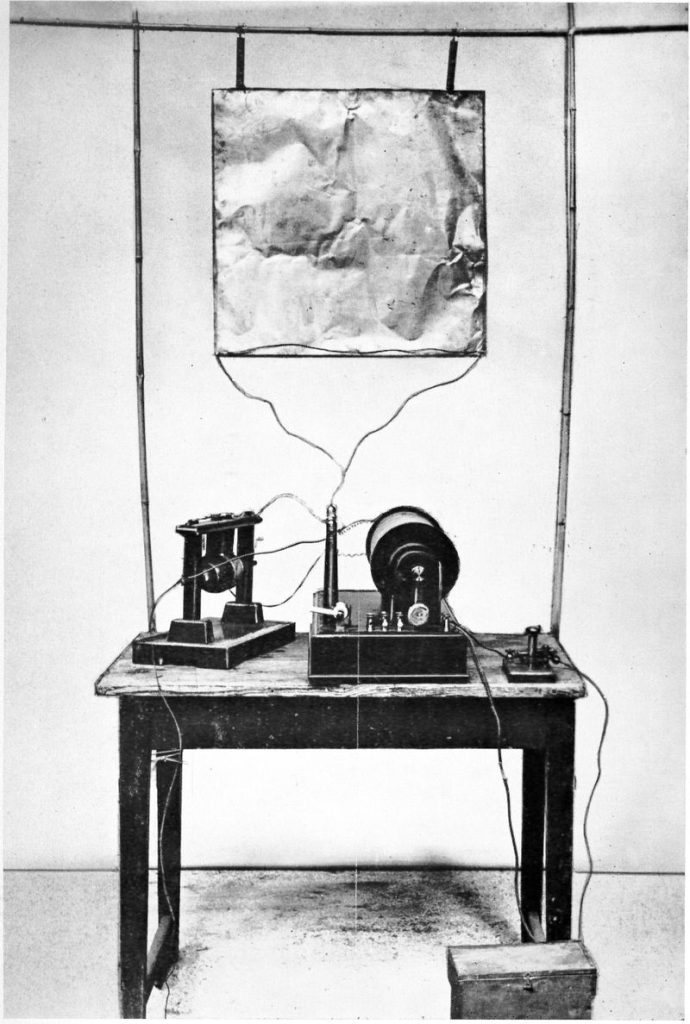The Red Weed
Given the impact of the Martian’s Red Weed on England’s urban and country environments we take a short detour to consider the plants that for a short time drowned much of England in a sea of red.
In London, the entries in Toni’s diary offers essential reading for the modern historian to properly understand the sweeping political changes that occurred after 1897. Many historians speculate that without ‘The Line’ and the anger it caused, the changes to society that swept from London, and indeed into the wider world, would have taken many more decades.
The Curies continue to collect evidence that the Martians are highly susceptible to arsenic.
Lt Dullanty decides to move his two platoons closer to London, setting up a heligraph in Greenwich to maintain contact with Tilbury Fort, while Lt Carver (ex HMS Thunder Child) continues to march his ragtag group towards Woking.
Things may be getting a bit crowded in London 😉
The Curies have reported that the individual rejected by Martians on the 12th was not drunk (despite his symptoms), but had been poisoned by arsenic. Marie was convinced he may have ingested it from the beer that had been his only sustenance for the past fortnight and demanded I obtain a sample for her to test as she believes the Martians may be highly susceptible to arsenic.
One of the lookouts then reported seeing a small group of captured people, who’d eaten rat stew in a safe house, being tossed from the cage of a tripod. The Curies might be on to something with this arsenic.
Before penicillin, Arsenic compounds were used to treat bacterial infections. At the end of the 19th century, a safe dose in humans was well known. In contrast, later investigations into Martian physiology showed why it would be so toxic to them. Internally, they consist of a brain, lungs, heart, liver, kidneys and blood vessels. They have no digestive tract. Mechanically transfusing blood via pipettes from other animals, notably humans, was the only way they could sustain themselves on Earth. Metabolising or excreting arsenic would have been problematic, and it would have accumulated and caused lesions in their skin, liver and kidneys, making them very sick before they died.
It was perhaps fortunate that the Curies, were French, and were already familiar with the symptoms of arsenic poisoning from a scandal involving arsenic-contaminated wine in France in 1888. Regrettably, these findings could not have been widely disseminated as this is the only record of arsenic used against the Martians.
It also unfortunate that the Curie’s findings were not published as this was first evidence of what by 1900 would result in more than 6,000 people in England being poisoned by arsenic-tainted beer, with more than 70 of the affected dying as a result. The food safety crisis was caused by arsenic entering the supply chain through impure sugar which had been made with contaminated sulphuric acid. Although being first detected in London by the Curies the illness was prevalent across the Midlands and Northwest England, with Manchester being the most heavily affected.
Subsequent, additional investigation into the outbreak found other sources of arsenic in beer, which had been unknowingly poisoning thousands in decades preceding the outbreak.
Before closing the Breakfast Handover I pointed out that we needed to test the Curie’s hypothesis and called for volunteers. The reception of this news was mixed. Some people don’t want to be used like poison bait. But if the Martian’s can’t stomach even a small portion of arsenic, we can make this place unliveable for them.
@sirjohntheengineer and @graceharwood say that #blackpowder washes away with #water Could this be a solution? #weneedtoexperiment
I have decided to move the unit closer to London. We’re not achieving anything here. The fort commander has agreed to loan me 6 men and 3 heliograph units.
One heliograph will be based at the Royal Observatory in Greenwich, with at least one repeater somewhere between the fort and Greenwich, probably on Bexley Heath. This will enable us to maintain contact with HQ via the fort’s telegraph unit while the weather remains fine.
We’re taking 4 boxes of dynamite. It’s not doing anything in the Fort, and there has to be something we can use it for.
From the personal log of Lt. Roger Carver, Royal Marines, HMS Thunder Child, 14 June 1897, 09:30 GMT:
As we cannot travel through London, our line of march to Woking must take us southwest to Tilbury where we must cross the Thames, before swinging northwest. We have thus far avoided the Martians but have seen the destruction that is their signature. With some exceptions, the men are becoming used their horses.
Basildon is in ruins and a measure of how we have fallen. Towards the town centre in front of the blackened wreck of the Town Hall, we came across a pile of bricks on which sat a chair that must have been pulled out of a bank manager’s office and covered in gold paint.
“Here now, that’s mine!” A portly man wearing the remains of a suit approached us. He looked like he’d been in the sun too long. “I’m the Master of Basildon. You report to me.”
“The Master?” I asked bemusedly.
“I’m the duly constituted civil authority hereabouts. I’m giving you an order!”
“I’m sorry, sir,” I smiled. “I don’t think so.” I turned to the column. “Move out!”
“I’m the master!” he shrieked as we rode past. “You lads listen to me!’ he called after us. “I can make Basildon great again!”
We rode on, leaving The Master of Basildon alone.
It is Wells’ and the curate’s 6th day confined to the collapsed house in Sheen, and they are amongst the first to notice the red weed. Biologists remain divided as to whether the Martians intentionally or accidentally brought the seeds with them. #RedWeed
There is no doubt to its hypertrophy, however, Wells recording that the red weed “grew with astonishing vigour and luxuriance, spreading up the sides of the pit so that its cactus-like branches quickly formed a carmine fringe to the edges of their triangular window.”
Mother has started to take food to people who can’t evacuate. She has found a hospital.
I hope they like rat stew.
The botanist Ernest Marquand, author of “Flora of Guernsey” and “The Red Weed” was fascinated by the Martian vegetation. Forced to remain in London during the invasion due to the pregnancy of his wife, he seized the opportunity to observe and document the plants as they appeared.
Marquand was the first to note that the red creeper was actually a transitory growth, which failed to gain any footing in competition with terrestrial forms. In its initial stages however, it appeared throughout the country, especially wherever there was a source of water.
Marquand was also one of the first to note the appearance of what he described as “a brown sheet of flowing shallow water, where meadows used to be along the Thames”. #Marquand #TheRedWeed
While initially surprised at this flood in an otherwise hot, dry summer, Marquand postulated that the flooding was caused by the tropical exuberance of the red weed.
He writes: “Directly the Red Weed encounters water it straightway becomes gigantic and of unparalleled fecundity. Its seeds simply poured down into the water of the Wey and Thames, its swiftly growing and Titanic water-fronds speedily choking both these rivers.” #Marquand
Alfred R Wallace, the well know naturalist and biologist, and 74 at the time of the invasion, remained at “Old Orchard” his house in Dorset throughout the war, and observed the spread and later death of the Martian weeds through the kitchen window.
Wallace is the first to suggest that by the action of natural selection, terrestrial plants have acquired a resisting power against bacterial diseases — never succumbing without a severe struggle. The red weed had no defence, however.
In Wallace’s “Darwin and the Martian” (1899) he wrote: “The Red Weed grew like a thing already dead. The fronds bleach, shrivel and become brittle. Dead, they break off at the least touch, and the waters that stimulated their early growth carried their last vestiges out to sea.”
Investigating the appearance of the Red Weed, Marquand walks to Putney where he observes the bridge almost lost in a tangle of this weed. While the Thames spreads out across the meadows of Hampton and Twickenham around it.
Marquand later writes that “as the waters spread the weed followed them, until the ruined villas of the Thames valley were for a time lost in this red swamp, whose margin I explored, and much of the desolation the Martians had caused was concealed.”
In the end, the red weed succumbed almost as quickly as it had spread, when it was attacked by a cankering disease, now confirmed as being either the Pectobacterium carotovorum or Pseudomonas viridiflava bacteria. Some biologists consider it may have been a combination of both.
@sirjohntheengineer spent the rest of the day #engineering and adjusting the #antenna on top of #QueenAnnesMansions How did I not notice the #antenna? @GMarconiwireless had been tossing ideas around with him in letters, so he built them.
@sirjohntheengineer made contact with #governmentinBirmingham #weareonourown #thereisaline #meningovernmentareheartless #wedemandthevote #thingswillchange #angry





